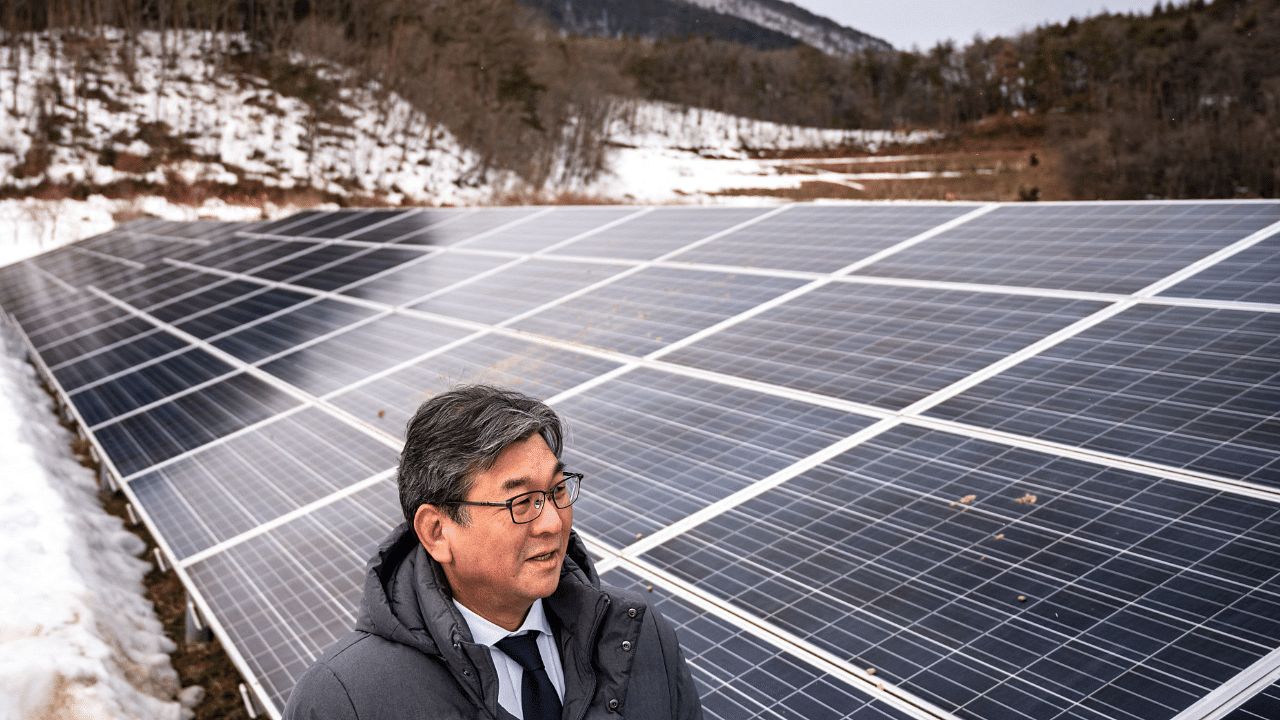
The Fukushima region affected by the 2011 nuclear disaster has invested heavily in renewable energy -- a sector Japan was slow to embrace, but now considers key to reaching carbon neutrality.
Here are some things to know about renewables in Japan, which remains one of the top emitters of planet-warming CO2:
Japan aims to become carbon-neutral by 2050, the same goal as the European Union and ahead of China's target to reach net-zero emissions by 2060.
The country has a long way to go, however. Japan is the world's sixth-biggest carbon emitter if the EU is counted as one bloc, according to European Commission data.
To help it succeed, the government has hiked its medium-term renewables goal after the previous target was criticised as unambitious by campaigners and major companies.
Japan now wants 36-38 percent of its power to come from renewable sources such as solar and wind by 2030, up from its previous goal of 22-24 percent.
It is slowly getting there: in 2020, renewable energy accounted for around 20 percent of Japan's electricity production, up nearly two percentage points year on year.
After a tsunami caused a meltdown at the Fukushima Daiichi nuclear plant in March 2011, Japan halted all its nuclear reactors to review and strengthen safety controls.
That left the country highly dependent on imported fossil fuels -- especially natural gas, which accounts for nearly 40 percent of Japan's total electricity production, and coal, which represents around 30 percent.
As of 2020, solar power is the most common type of renewable energy in Japan, having overtaken hydroelectric as new solar fields were built after the 2011 disaster.
Power production from wind and biomass is also increasing, and Japan is investing in research into green hydrogen, a clean fuel when made through renewable energy.
The proportion of Japan's energy generated through nuclear power remains very low, at less than four percent, compared with a quarter before the 2011 disaster.
Some of the country's atomic plants have been permanently shut down, and others have been slow to get back online as legal battles rage between local governments and groups of residents and campaigners.
Nonetheless, the government is holding out hope for a nuclear power revival to reduce dependence on imported energy, with Prime Minister Fumio Kishida calling the restart of nuclear plants "crucial".
Japan's government wants nuclear to account for 20-22 percent of electricity production by 2030, but experts say this will prove challenging.
The country must "develop different decarbonisation scenarios to prepare for the possibility that certain low-carbon technologies, such as nuclear, do not expand as quickly as hoped", the International Energy Agency said in a report last year.
Another controversial topic is the Japanese financing of overseas fossil fuel projects such as coal plants.
Tokyo has pledged to tighten rules for investment in foreign power stations, but will push on with plans already in progress for several massive coal projects.
Check out DH's latest videos